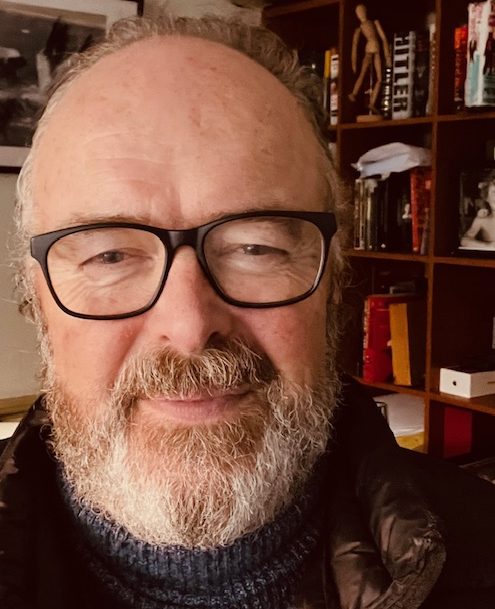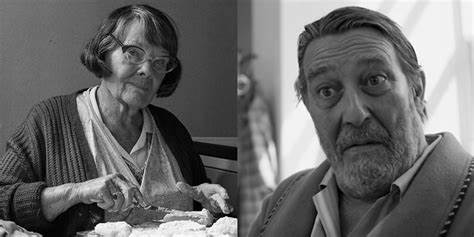
My first memories of the Troubles comes from 1968. The local news that come on after children’s TV, still in black and white, reported on events from Londonderry (it was the BBC). What I later learned was the conclusion of a Civil Rights march had ended with the now famous scenes of the RUC bringing their batons to bear, unprovoked, on the heads of the marchers. The next day I remember mum relaying a ‘joke’ she had heard from Mr Radcliff, the butcher. “Gerry Fitt went to Londonderry for a laugh, and came back in stitches…” At the age of ten I could connect the words laugh and stitches, but the humour and the man in question were a mystery.
I had started being engaged in politics already. I watched Panorama about the ’68 US election. America was a land of glamour and excitement. The assassinations of Martin Luther King and Robert Kennedy had shocked the world, and me too. Politics stuck and has stayed stuck.
By the next year, 1969, we had seen the sparks of trouble grow into fully flaming fires. I was in Larne to stay with my cousin Stephen for a week. I was now eleven and he was twelve. We had theatrical ambitions, and were writing and rehearsing a concert that would be previewed in the shed at the end of his garden, with a view to being performed at Halloween in the Craigy Hill Community Centre, (we were a hit and Stephen LeFevre has gone on to a successful career in broadcasting.)
I came down for breakfast and my Auntie Noel was laying the table. The radio was on in the background when she said:
“There were five people shot in Belfast last night!”
I looked at her missing her meaning.
“Were they badly hurt?”
“Shot. Dead. They were killed.”
We fell into silence. I was now really shocked. People killed, bullets, on the streets, not just riots. That was the day life in NI changed irrevocably for all of us.
It is also the first day of the film Belfast, directed by Kenneth Branagh, with a star filled cast of Caitríona Balfe, Judi Dench, Jamie Dornan, Ciarán Hinds, Colin Morgan, and newcomer Jude Hill. The opening panorama shows the new Belfast of 2021, in all its colourful glory, and a mighty fine place it looks too. We are then brought back in time to 1969, when the world was black and white.
I now own up to being middle class, brought up in the constantly called leafy suburbs of Belfast. It was miles away from the economic environment depicted in the film, but only a few miles geographically. The butting of socio economic groups was even closer, as the Lisburn Road was a 20 yard divide between the middle and working classes. Terraced streets were still populated by families not students and young professionals as happened later. But in September 1969 I started school right bang in the middle of Belfast. Going to the Royal Belfast Academical Institute took me away from the safer environs of South Belfast and into contact with the city. As the years went on we became acclimatised to bombs exploding, not exploding being only bomb scares, and avoiding certain streets as our uniform would attract attention from lads that were not of the opinion that Inst boys should pass by without a kicking.
But back to Belfast.
It is a hodgepodge of a film. Parts excellent and parts, well, simply distracting in their anachronistic errors. Does it matter that there were no Asian corner shops in working-class Belfast? Or that there were no caterpillar tracked tanks with fully blown cannons on turrets crashing into buildings? Buses from Rathcoole to the airport, when it would have been the Liverpool boat taking him to England. Is it important that the eruption of violence is given no context for why suddenly people that had got on well were suddenly at each other’s throats? I don’t mean a full exposition of the history of the Troubles, but something that would give credence to the actions of the protagonists. To the rest of the world maybe not, but that may be the problem. A film so successful becomes the factual presentation of the history to those that know nothing else.
Core to the story is the pressure on Pa to join up, to participate in the sectarian conflict, but with no context, there is no real explanation why this matters. And with that missing the core of the story goes soft.
There is an almost dreamlike quality to Mr Branagh’s memories. Streets filled with happy children, not a care in the world. Neighbours all besties. The cross community primary school, the cross community romance between Buddy (anyone know anyone called Buddy in 1960s Belfast) and the smartest girl in the class. One thing glaring to those if us who were young boys at the time is that there was no reference to George Best. No young footballer shouting “I’m Georgie Best” while scoring between two jumpers. It is rose tinted in a way that makes the violence appear unreal as well. The hard men are not that scary. Jamie and Caitríona are both humans of the extremely good looking variety, too good to be true. It’s a movie and it never lets me forget that.
But there is a lot of good too. AI laughed at some of the dialogue, particularly an explanation to his Ma why Buddy had a box of Omo. There was real wit in the script, and Ciarán Hinds is the anchor of Belfast philosophy. Caitríona Balfe was a wonder, bringing light and shade to her performance, showing frustration at events. Jamie Doran is becoming an actor. He is trying harder to try less, letting the dialogue and the director lead him, I think this is the best performance I have seen. If he is let down it is by the character of Pa. A hard worker, but feckless too. A man of non sectarian principles, but why him of all on the street. Again the lack of context and explanation unwinds the believability.
And what of Buddy? A fine performance by Jude Hill, but perhaps his context was distorted too. Why would he be the only child in a riotous assembly storming a store? Why would a girl clearly five or six years older hang about with a ten year old? Again I am drawn to the idea that Ken Branagh was looking at his own childhood through the sentimental memory glass. The film made me think of how memory works, and to realise that we are all prone to remember the good and park the bad. Long hot summers are remembered, 1972 and 1976 stand out in my mind, but 1975, I haven’t a clue.
And here I will give you my context. Being from Belfast, I do wonder if someone who left in 1969 can tell the story. Kenneth Branagh is a marvel of film and theatre, I know nothing in comparison, but my reading of the film is tainted. It is a personal history, but even as that it is too twee. Those details are the details that people who lived here would know. The context lives on to today. We continue to live with the consequences of August 1969. The Troubles got a capital T. Lives were lost daily, horrific violence became our context.
For a film to represent Belfast, with the title writ large, I think it fails. But not completely.


Great review. I felt pretty much the same. I wanted to like it but found it schmaltzy and not convincing. I suppose you have to accept it’s a child’s eye view, but I just wish it had been better written.
LikeLike